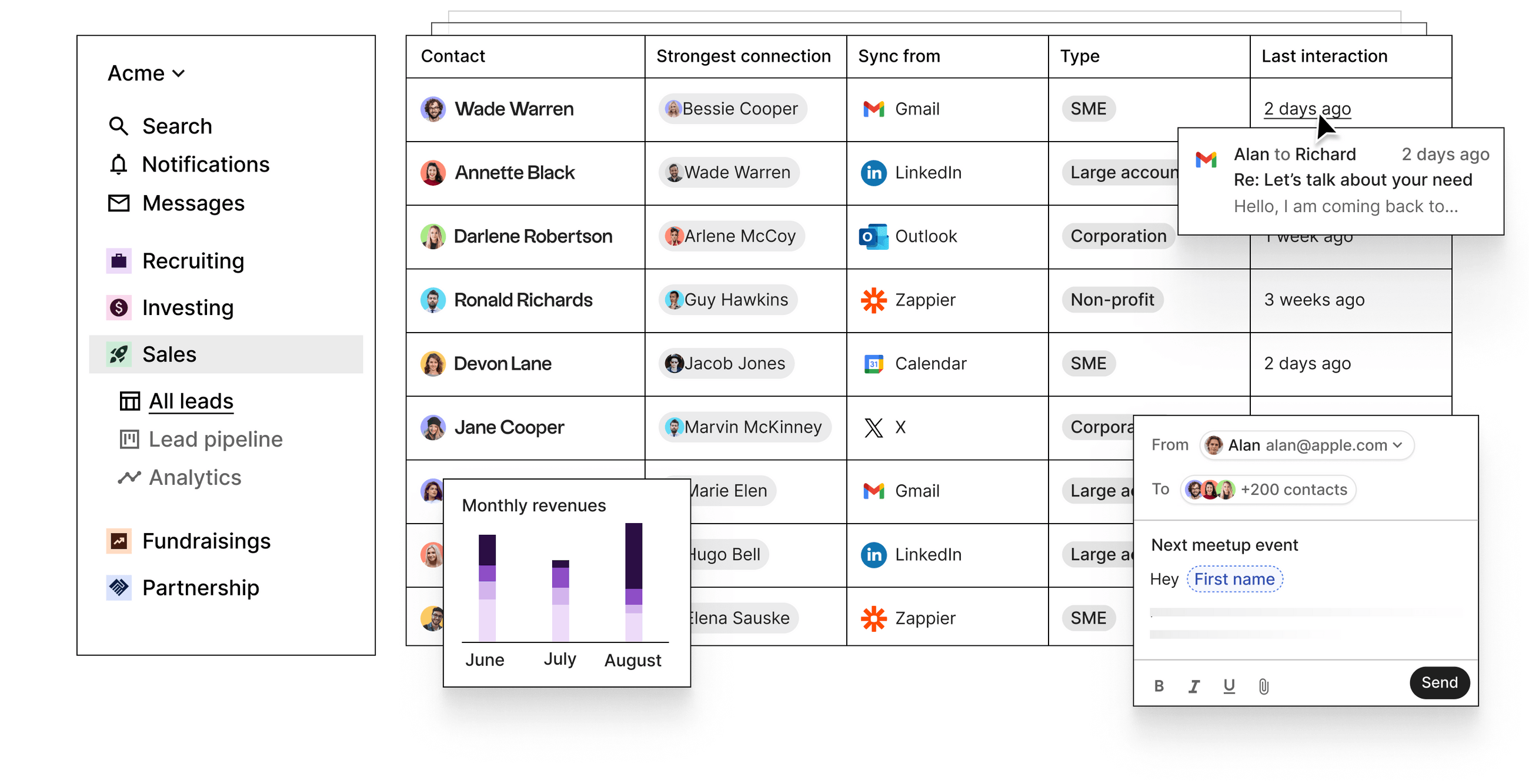From understanding your ideal customer profile to reaching out to the right prospects, establishing and building business relationships are at the centre of any BDM role. In this blog post we look into what a BDM is, what they're responsible for and use cases for a CRM.
What is business development?
Business development is the process of identifying, nurturing, and acquiring new business opportunities. It involves a strategic approach to expanding a company's market reach, increasing revenue, and building long-term relationships with customers, partners, and other stakeholders. The primary goal of business development is to create sustainable growth through a combination of strategic planning, marketing, sales, and relationship management.
A business development manager plays a crucial role in a company because they're driving business growth and securing new market opportunities.
What does a business development manager do?
Wondering what business management involves like on a day to day basis? The development manager responsibilities you have might look a little different depending on your senority. Job descriptions on online job boards such as Glassdoor are a great place to start. Teal is also a handy resource and have listed a few key responsibilities of the average business development manager including:
1. Identifying new business opportunities
- Researching and identifying new business opportunities, including new markets, growth areas, trends, customers, partnerships, products, and services,
- Generating leads and cold calling prospective customers to establish rapport and set up meetings,
- Planning and overseeing new marketing initiatives to boost the company's market presence,
- Developing a sales strategy and growth strategies, planning with clear objectives to increase revenue and business expansion.
2. Building relationships
- Understanding the needs of existing customers and how the company's products or services align with their goals,
- Building and maintaining strong relationships with clients, potential clients, and industry contacts,
- Negotiating with stakeholders and drafting business proposals and contracts to close deals and secure new business,
- Collaborating with internal departments such as marketing, sales, and product development to ensure company goals are met,
- Attending conferences, meetings, and industry events to network and promote the company.
3. Managing client accounts
- Working closely with the sales team to convert prospects into customers and to identify upsell and cross-sell opportunities,
- Training personnel and helping team members develop their skills to enhance business development efforts,
- Using CRM software to track progress with new prospects, manage new leads, and analyze data to inform business strategies and business management.
What does a job description for a business development manager role look like?
From understanding your market dynamics, to owning the sales cycle, there are a some broad development manager responsibilities a job description will consist of. But this depends on where you're applying.
For instance, this is a snippet of a Business Development Manager role live at the time of writing, at Gartner.

How to use a CRM for business development
Building and establishing new business relationships are time intensive and require a lot of effort. A good tech stack can help a BDM get the time back needed to look at market trends, prepare sales presentations and establish relationships with new customers and existing ones. Below are a few use cases.
1. One source of truth
- A CRM system centralizes all client and prospect information, making it easily accessible and manageable,
- It helps BDMs keep track of interactions, notes, and follow-up tasks, ensuring nothing falls through the cracks.

2. Streamline internal and external communication
- CRMs streamline communication by providing tools for email marketing, automated follow-ups, and reminders,
- They help maintain consistent and timely communication with clients and prospects,
- Some CRMs facilitate collaboration among different teams by providing a unified platform for sharing information,
- They can integrate with other tools and systems, enhancing overall efficiency and effectiveness.

3. Sales pipeline management
- BDMs can use CRM systems to visualize and manage their sales pipeline,
- It allows them to track the progress of deals, identify bottlenecks, and prioritize high-potential opportunities.


4. Data-driven insights
- CRMs offer analytics features that provide valuable insights into business development activities,
- BDMs can use these insights to refine their strategies, improve performance, and make informed decisions.

Conclusion
A Business Development Manager (BDM) is a key driver of growth and success in any organization. By identifying new opportunities, building strong relationships, and executing strategic plans, BDMs can help you expand your reach, increase revenue and stay ahead of industry trends. Even though business development manager jobs can vary depending on your senority, relationships are at the heart of what a good business development manager does. Using a CRM system such as folk can significantly enhance a BDM's ability to manage client relationships, streamline processes, and make data-driven decisions.
Discover folk CRM - Like the sales assistant your team never had



.webp)



